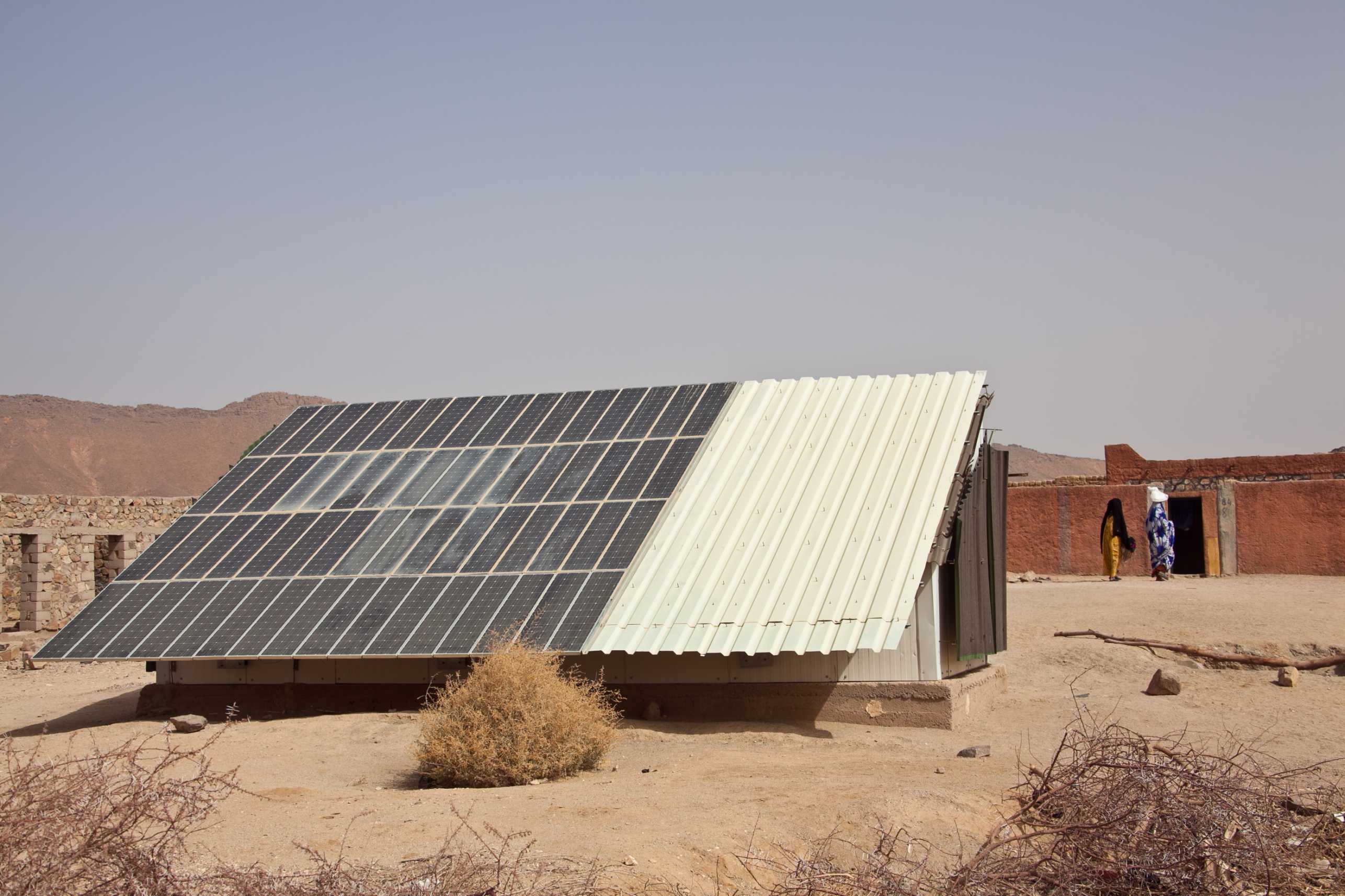Environment, Climate, and Energy
ETH for Development (ETH4D) has been supporting the following projects in the field of Environment, Climate and Energy.
Low-Cost Sustainable Reforestation with Seedballs
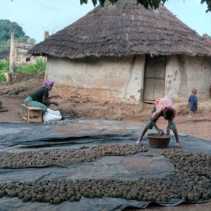
The project addresses the global challenge of affordable and sustainable reforestation in Guinea with the local resource seedball as a potential solution. Current reforestation projects try to reduce costs by concentrating on single tree species which requires expensive nurseries and create unsustainable monocultures. In contrast, through an affordable, efficient, bottom-up and participatory approach, arboRise increases the number of species and selects those trees useful for the local population. Millions of seeds are harvested locally by local residents, coated with a protective mixture of charcoal and clay, and directly sown in the same region on multiple land patches. The ForDev Group will assess the social impact of the actions to ensure an adaptive and responsive reforestation process. Thereby importance is given to socially informed dialogues and monitoring processes, which can provide access and control rights over restored landscapes, giving control to local communities over their development pathway. By demonstrating the performance of low-cost sustainable reforestation with seedballs, the project aims to boost reforestation projects worldwide to ultimately provide a major contribution in the fight against climate change.
Focus Countries: Guinea
Contact: Dr. Claude Garcia
Partners: external page arboRise; external page Guinée Développement Rural et Environnement (Guidre) (Guinea)
ETH4D Grant: ETH4D Research Challenges Grant
Drought Characterization and Forecast in the Horn of Africa (Ethiopia, Kenya, and Somalia)
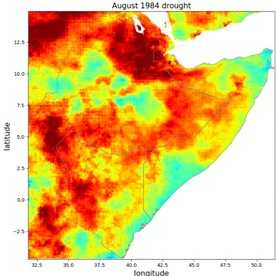
Drought is one hydro-climatic phenomenon causing havoc on society, the economy, and the environment. It has impeded development throughout human civilization and is considered one of the most economically impactful natural disasters due to its extensive spatial coverage and prolonged duration. The impacts of droughts are particularly devastating in regions such as the Horn of Africa, where rainfed agriculture and livestock farming are the primary sources of economy for a large majority of the population.
Governments, stakeholders, and societies in the Horn of Africa emphasize drought crisis management more than drought forecasting and mitigation planning in advance of an event. Adequate understanding of past drought events and improved, operational, dynamic, and adaptable drought forecast systems are vital to effectively supporting drought early warning, preparedness, and risk management. This project aims to develop an innovative framework that links past drought characteristics, drought forecasts, and potential mitigation options and adaptation strategies for Ethiopia, Kenya, and Somalia.
Focus Countries: Ethiopia, Kenya, and Somalia
Contact: Tamirat Haile, Prof. Paolo Burlando
Partners: external page Adama Science and Technology University, external page Arba Minch University, external page University of Zurich
ETH4D Grant: E4D Doctoral Scholarship
Exploring Pluvial Flood Risks and Mitigation Options in Low-Income, Data-Scarce Regions
Blue-green infrastructures (BGI) increase the peaking time and reduce the peak intensity and runoff volume of surface runoffs for most storm events, thereby reducing the risk of flooding and sewer overflowing. BGI have been increasingly adopted for stormwater management in cities worldwide due to these hydrological benefits.
However, like any other urban water infrastructure, BGI require regular upkeep (sweeping, de-clogging, and replacing composite layers) to preserve their hydrological performance. This aspect is often overlooked and understudied.
We hypothesise that an unmaintained BGI will have reduced hydrological benefits and therefore this needs to be considered when planning and designing BGI for cities and modelling their long-term performance. While infrastructure maintenance is a big challenge all over the world, it is especially relevant in low-income regions, where urban (water) infrastructure management is hindered by practices such as the open dumping of solid wastes and irregular sweeping of streets that, in turn, clog the drainage system.
Low-income regions are also less equipped to deal with the consequences of floods and sewer overflows due to their socio-economic constraints.
As such, if BGI are to be implemented for stormwater management purposes, their maintenance should be prioritised to ensure optimal hydrological performance, thereby preventing the flood and overflow risks in the first place.
Focus Countries: Nepal
Contact: Prabhat Joshi, Prof. Max Maurer, external page Dr. Christoph Lüthi, external page Dr. Joao Paulo Leitão
Partners: external page NAXA (Kathmandu, Nepal), external page Global Institute for Interdisciplinary Studies (GIIS) (Lalitpur, Nepal)
ETH4D Grant: E4D Doctoral Scholarship
Project Page
Planning a Prosperous Forest-Infrastructure-Matrix
This seed project will explore the benefits and tradeoffs from infrastructure development for local communities in Lao PDR who use tree resources. Roads and railways lines are expanding rapidly in the country, and it remains unclear who wins and who loses from this development. Together with partners from the Lao Forestry Research Center and Bioversity International, we will co-develop approaches to understand and assess how far livelihoods are impacted by or benefit from infrastructure development when it comes to use of forest and tree resources in rural to peri-urban landscapes. A particular focus will be on the role of maps and aerial images as planning tools to understand forest cover changes and how they are perceived at local and national scales.
We will compile new and existing maps and spatial data to illustrate the link between road and railway development and forest cover changes at national and regional scales. Further, we will engage with local communities and try to capture their tree-use realities on the ground with the help of drone-based participatory mapping. We will engage in focus group discussions with people along a gradient from urban to rural to assess their interpretation of the forest and landscape changes related to infrastructure development. We will initiate a co-learning process about spatial planning procedures that integrate socio-economic needs, conservation and restoration in forested landscapes. The outcome will be an evaluation of the preconditions for a prosperous forest-infrastructure-matrix that can lead to further applied research on how infrastructures can contribute to just forest transitions where decrease turns to increase in forest cover.
Focus Country: Laos
Contact: external page Dr. Fritz Kleinschroth
Partner: external page Laotian Forestry Research Center, external page Tree Diversity for Resilient Landscapes at the Alliance of Biodiversity and CIAT
ETH4D Grant: ETH4D Pilot Grant
Environmental DNA (eDNA) Analyses for Monitoring of Wildlife Species in the Mountains of Bhutan
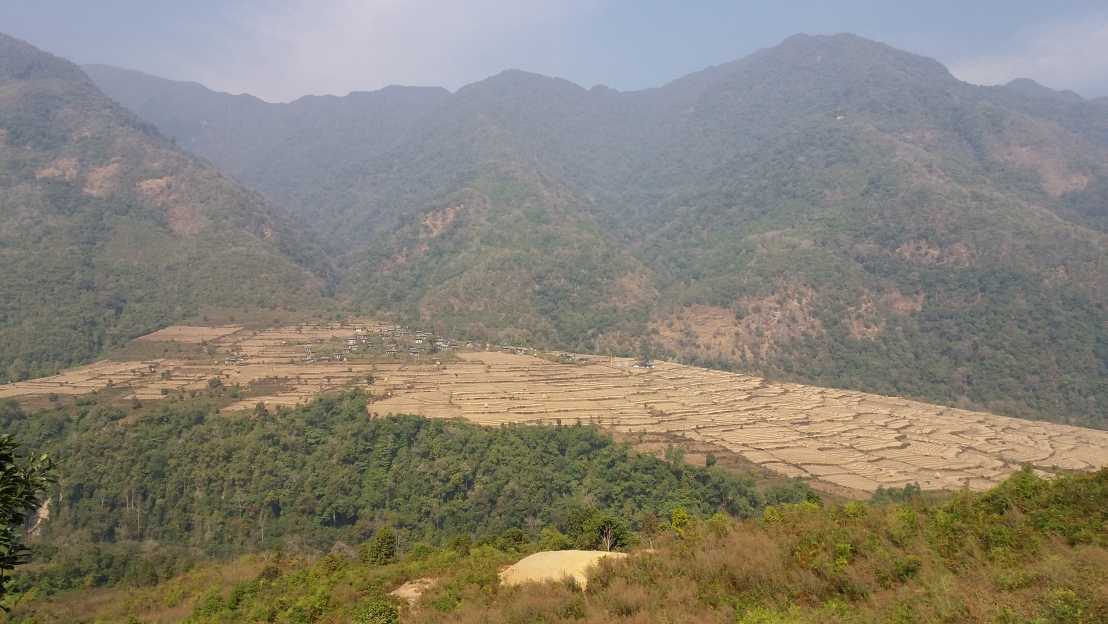
In Bhutan, livestock products and agricultural crops are the main sources of income for local communities. Still, this livelihood has been affected by wild animal attacks and depredation over the last few decades. Because of limited productive surfaces, the interface between wildlife and agriculture is even tighter, and the topographic complexity of the terrains renders wildlife monitoring difficult. To maintain the unaltered socio-cultural integrity of local communities, it is essential to have better information about the risk to design societal action for minimizing the conflict between humans and wildlife.
Biodiversity monitoring coupled with spatial modelling can support the design of guidelines for management and especially conflict avoidance. Through research and application, it has been demonstrated that occupancy models can be used for designing spatial planning and conservation actions, leading to better management of ecosystems. However, designing spatial occupancy models for management plans requires many occurrence data, which can be challenging to collect in rugged mountain terrains (e.g. Bhutan). However, novel species detection methods can counteract this drawback.
Fortunately, the emergence of new biomonitoring technologies such as eDNA analyses allows the scientific community to generate species inventories rapidly and has been suggested as effective environmental monitoring tools with higher detection capabilities and better cost-effectiveness than traditional methods. In this research project, I will develop a platform for CRISPR-Cas analyses to detect eDNA of mammalian species from the water samples to boost detection and identify the moments and the place when the livestock is most at risk from attacks as well as the crop-raiding. Hence the project will open new opportunities in the planning of socially, culturally, or technically innovative projects fostering strategies for the conservation of wildlife species, its detection, and management and planning for mitigating Human-wildlife conflict.
Focus Country: Buthan
Contact: Karma Sherub, Prof. Loïc Pellissier
Partners:
external page Prof. D.B. Gurung (external page College of Natural Resources, external page Royal University of Bhutan)
ETH4D Grant: E4D Doctoral Scholarship
Flood Risk Mitigation in Humanitarian Settlements
As of mid-2024, there are an estimated external page 120 million forcibly displaced people worldwide. This number is expected to rise due to the changing climate, with refugee camps likely to expand. At the same time, climate change increases the frequency and intensity of natural hazards, putting refugee settlements at particular risk. That is due to their precarious socio-spatial situation, often featuring remote locations and temporally built structures fueling the socio-political vulnerabilities of the displaced residents. Managing the risk from natural hazards is, therefore, essential to ensure sustainable and safe settlements.
In the face of these challenges, the Humanitarian Planning Hub at SPUR and the Chair of Planning Landscape and Urban Systems (PLUS) at ETH Zürich collaborate with external page UNHCR and the Swiss Development Cooperation (SDC) through the external page Geneva Technical Hub to develop a toolbox for flood risk reduction with the aim of supporting field staff in identifying and mapping flood risks for refugee settlements. The tool comprises an easy-to-use GIS (geoinformation system) tool, an online learning platform with guidance on flood risk mitigation measures and local risk data collection methods. For more information on the toolbox, visit: external page www.humanitarian-risk.org.
In close collaboration with the regional, national and international UNHCR focal points, this pilot project seeks the comprehensive implementation of the toolbox in Betou refugee settlement in the Republic of the Congo, including a) in-depth participatory workshops to improve collection of local risk data and knowledge and b) on-site training workshops. This forms the basis for a scientifically sound evaluation and improvement of the toolbox and its further dissemination.
Focus Country: Republic of Congo (DRC)
Contact: Dr. David Kostenwein, Prof. David Kaufmann
Partners: external page UNHCR
ETH4D Grant: ETH4D Pilot Grant
Development of an Early Warning Modelling Tool for a Large Lake Affected by Methane Harvesting, Volcanism, and Climate Change
Lake Kivu, one of the African Great Lakes covering more than 2,300 km2, is situated in an active volcanic region on the border between two neighbouring countries: Rwanda and the Democratic Republic of Congo. It provides livelihoods to around 5.7 million people living in the two riparian countries. However, the lake has gained notoriety for its extremely high amounts of dissolved carbon dioxide and methane (approximately 300 km3 and 60 km3, respectively) that are vulnerable to catastrophic gas eruptions. This issue poses a threat to the lake ecosystem and human lives around the lake. In fact, it is worth noting that in 1986, two Cameroonian lakes, Nyos and Monoun, experienced gas eruptions, which resulted in the tragic deaths of over 1,700 people due to the toxic release of carbon dioxide. The danger and potential for such a gas eruption in Lake Kivu could be even more catastrophic, especially considering its larger size and the fact that more than 2 million people live near the lake's shore.
In the last two decades, the dissolved methane gas in Lake Kivu has been found to be a valuable natural resource for energy use. Consequently, a project to extract methane from the lake was initiated in 2009, serving the dual purpose of generating electricity and reducing the amount of dissolved gases in the lake to mitigate the risk of gas eruption.
According to the Rwanda Environment Management Authority (REMA), the KivuWatt Power Plant has been producing over 26 MW since 2016, and Shema Power Lake Kivu Limited is constructing a 56 MW plant, with further extensions expected to increase total production to approximately 200 MW in the future. Additionally, agreements have been signed between the Rwandan government and other companies, including Gasmeth, for the extraction of methane from Lake Kivu for various purposes, such as cooking and fuel for cars. However, it should be noted that methane extraction from Lake Kivu has significant effects that are not fully understood and could have a negative impact on the lake ecosystem or increase the probability of a gas eruption from the lake.
REMA plays a crucial role in monitoring Lake Kivu under such extraction operations, with the potential goal of benefiting from the lake's resources without risking a gas eruption or sacrificing the lake’s ecological integrity. However, there remains a need for stronger long-term monitoring to gain a more comprehensive understanding of the lake's changes resulting from human uses, including methane harvesting, and other natural aspects. Therefore, aligning with the goal of the Engineering for Development (E4D) program, this project aims to support REMA in the sustainable management of Lake Kivu and its resources, with a specific focus on maximizing local community benefits derived from the lake's valuable resources and conducting comprehensive risk assessments to facilitate informed decision-making. The main focus of the project is to develop a user-friendly modelling tool that can be used to easily monitor the lake.
Lake Kivu is exposed to various human and natural influences, including methane harvesting, climate change, and volcanism. Under this project, an existing model adapted for Lake Kivu will be used to develop a user-friendly modelling tool based on the latest scientific understanding of the lake. The model will be enhanced by integrating the combined effects of methane extraction, climate change, and volcanic activity, and by linking it with the lake’s observational database. Thus, the modelling tool will not only explore the expected impacts of different scenarios for methane extraction, but also serve as an early warning system for unexpected changes in the lake, providing alerts for potential changes in the lake’s water column caused by either methane harvesting or volcanic activity.
Focus Country: Rwanda
Contact: Modeste Mushimiyimana, Prof. Dr. Nicolas Gruber, Dr. Martin Schmid
Partners: Mr. Eric Ruhanamirindi Mudakikwa, external page Rwanda Environment Management Autorithy (REMA), Rwanda
ETH4D Grant: E4D Doctoral Scholarship
Serious Games and Forum Theatre as Catalysts for Inclusive & Participatory Green Transition
The archipelago country of São Tomé and Príncipe is recognized as one of the most interesting biodiversity hotspots in the Gulf of Guinea, with a large percentage of endemism. However, the country faces significant threats to its unique Natural Capital due to poor environmental governance and resource depletion, associated with population growth. BirdLife International, in collaboration with LEAF Inspiring Change, ETH, and CIRAD, has developed a serious game prototype named "Dukunu Mole" to explore alternative development pathways for Natural Resources & Land Use management in São Tomé. The game was tested with different groups, refined and recalibrated through several iterations based on players’ feedback, and validated.
The project aims to upscale the game's use and mainstream its adoption to foster awareness, dialogue, and policies around biodiversity conservation. We aim to disseminate the approach within diverse arenas: youth & students, policy makers, other islands population and larger audience. To do so, we will combine the approach with Forum Theatre to overcome the attendance limitations within a
given game session and reach for larger number in a single setting. The impact of the project will streamline the Serious Game and Forum Theatre approaches as part of BirdLife's engagement activities with communities and stakeholders, integrating the tools into
environmental curricula at various educational levels, and creating a change in narrative on the current topic of biodiversity conservation. The focus will be on communicating the benefits of co-management through trusted messengers and amplifiers, multiplying audiences and channels of diffusion, and creating a joint definition of a theory of change for green development with replicability in similar biomes
and other Small Island Developing States. The project will promote experiential learning, offering an innovative approach to stakeholder engagement, leading to informed and inclusive decision-making processes, transparent democratic dialogues, and sustainable and equitable landscapes.
Contact: Dr. Anne Giger Dray
Partners: external page BirdLife, external page CIRAD
Focus Country: São Tomé and Príncipe
ETH4D Grant: ETH4D Pilot Grant
Off-grid Electricity-based Energy Services in Rwanda
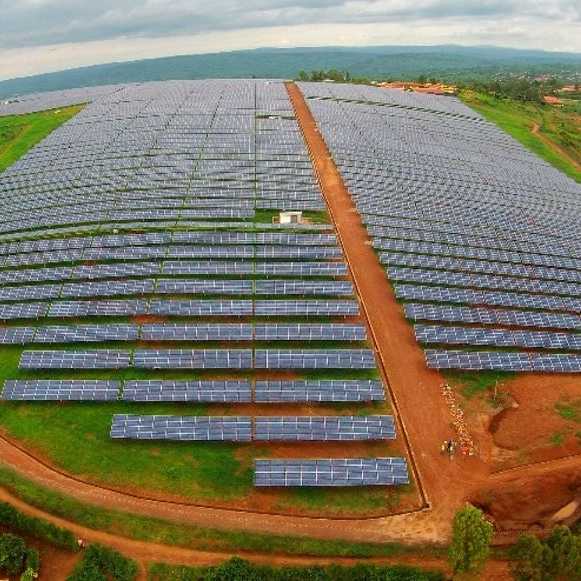
Apart from access to energy, poverty reduction also requires access to services that are enabled by new electricity-based applications and support human socio-economic development, such as ICT, lighting, or cooling. This research project addresses energy service poverty in rural and remote areas in Rwanda, by providing reliable and affordable "electricity-based" energy services. This promotes productive use and income-generating opportunities for the end-user. This research intends to inform (national and international) electrification policy, by bringing electricity-based energy services to the heart of the analysis on "energy access".
Focus Country: Rwanda
Contact Persons: Dr. Churchill Agutu, Prof. Tobias Schmidt
Partners: external page Kigali Collaborative Research Centre, Kigali, Rwanda
ETH4D Grant: E4D Doctoral Scholarship
